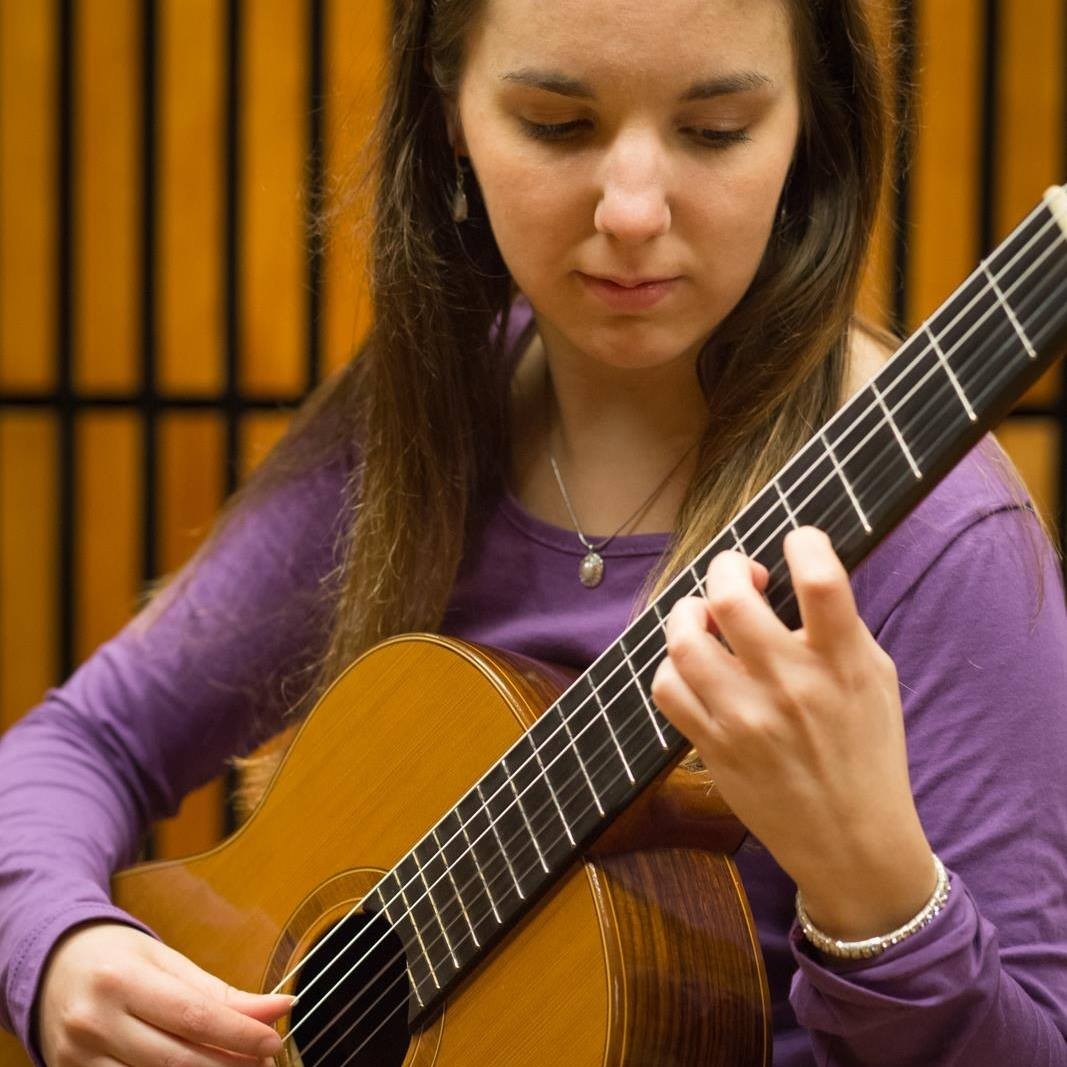We recently connected with Manuela Iparraguirre and have shared our conversation below.
Hi Manuela , thanks for joining us today. What did your parents do right and how has that impacted you in your life and career?
When I was a child, I wanted to start learning guitar, and my parents listened to me. They asked different people to recommend teachers and they decided that the Suzuki Method would be a good option for my learning process. I started to study guitar through the Suzuki Method when I was 8 years old. During all my learning process I experienced amazing experiences and I enjoyed so much that I decided to be a Suzuki Method teacher, to continue having these kinds of experiences and to try to give to others the same opportunities that I had. Without any doubt, being a Suzuki Method student was one of the best gifts that I had during my childhood. It gave me skills not only for music, but also for my life.
In the Suzuki Method, we not only work with the students, we also work with the environment, so the family is part of the learning process, parents learn how to play the instrument and they attend the lessons with their kids.
Manuela , love having you share your insights with us. Before we ask you more questions, maybe you can take a moment to introduce yourself to our readers who might have missed our earlier conversations?
I was born in 1994. I began my guitar studies through the Suzuki Method at the age of 8. I finished my studies as a Guitar Teacher in 2016 at the Gilardo Gilardi Conservatory of Music, in the City of La Plata, Argentina. I participated as a student in the SAA SUZUKI CONFERENCE, in Minneapolis, USA, in 2008 and 2014. In 2010, I participated as a soloist in the Guitarras del Mundo Festival. And this year, I participated again in the SAA SUZUKI CONFERENCE, as a teacher, giving a talk and playing. Since 2017, I have been a member of the Cameratas Argentinas de Guitarras, a recognized guitar group. As part of the ensemble, I have participated in concerts in the main theatres of Argentina, such as Usina del Arte, Centro Cultural Kirchner, Teatro Argentino, Coliseo Podestá, Radio Nacional, among others.
As a Suzuki Method teacher, I gave lessons and talks in different parts of Argentina, Chile and the USA. And I regularly teach the Suzuki Guitar program at Gilardo Gilardi Conservatory of Music, and in EstíMusical, an institution specialized in the Suzuki Method. Also, I give online lessons to students from all around the world.
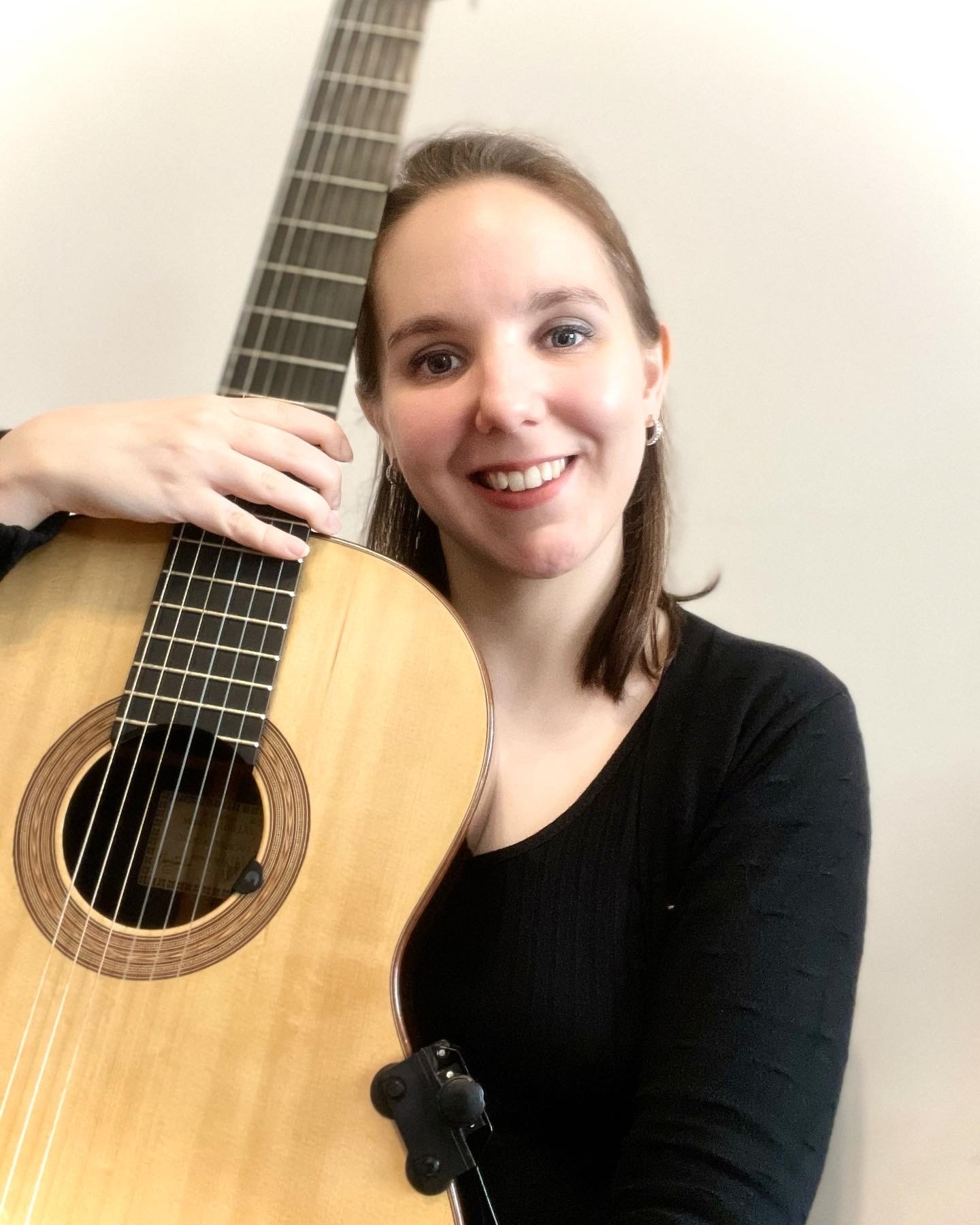
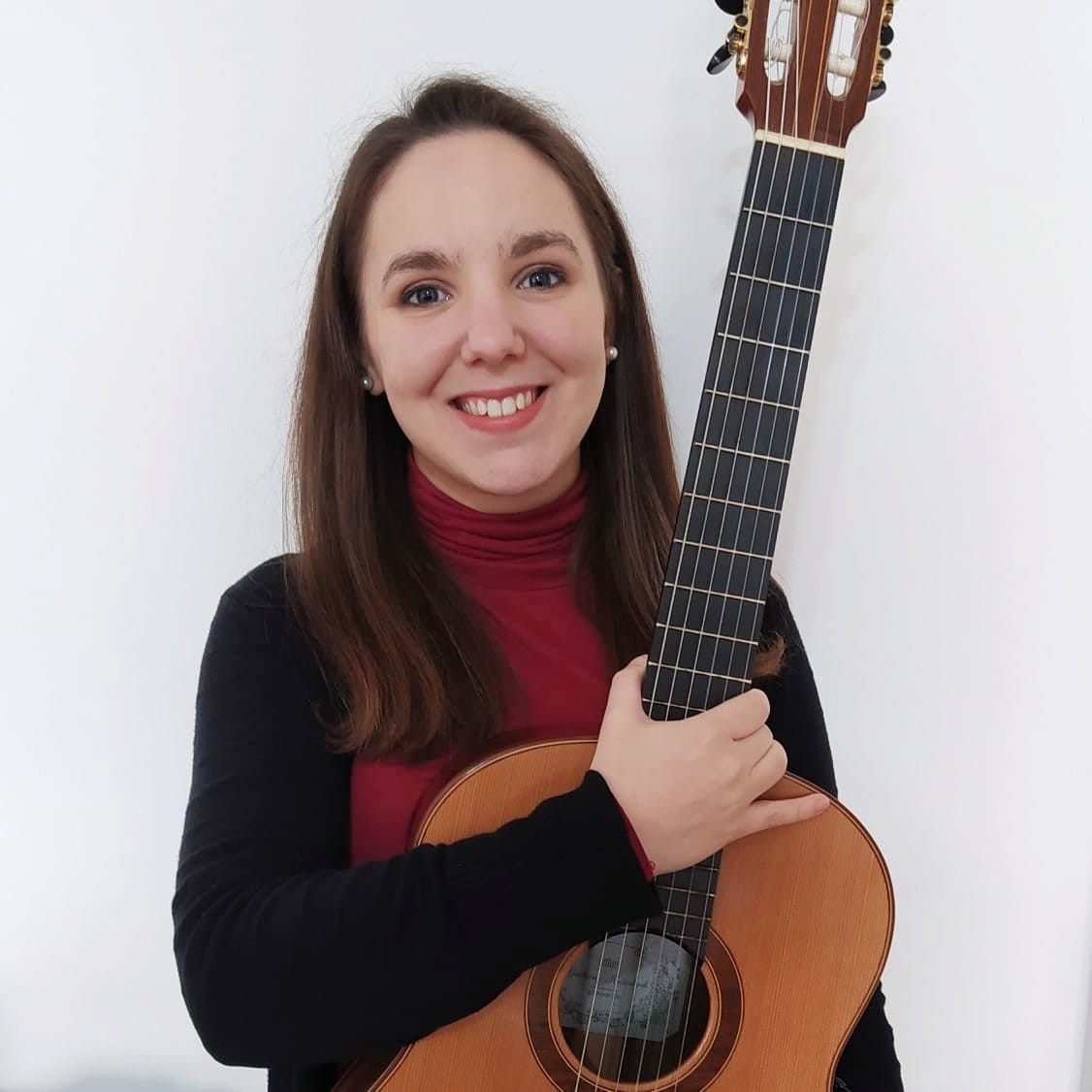
Have any books or other resources had a big impact on you?
I think that my most important mentor was my guitar teacher, Diana Chagalj. I think that the relationship between someone who is learning to play an instrument and his/her teacher is very special and important. Recently, I have read a scientific article about the relevance of having a friendly and good teacher. In 1998, Davidson, Moore, Sloboda and Howe found that students who sustained the learning process during the first steps used to have a friendly, relaxed and chatty teacher, and for sustaining it in higher levels it was important to have a teacher who encouraged them to work, pushed them to try new challenges, and were considered good teachers and players by their students.
Then, when I went to different festivals and being part of different musical projects I met very incredible musicians who were also an inspiration for me, such as MaryLou Roberts, David Madsen, Berta Rojas, Leo Brouwer, among others.
Now, I continue taking lessons with two very important musicians in my country, Miguel de Olaso, who specializes in early music, and Víctor Villadangos, who specializes in Latin American music. I think that as musicians, we never stop learning; it is a continuous process.
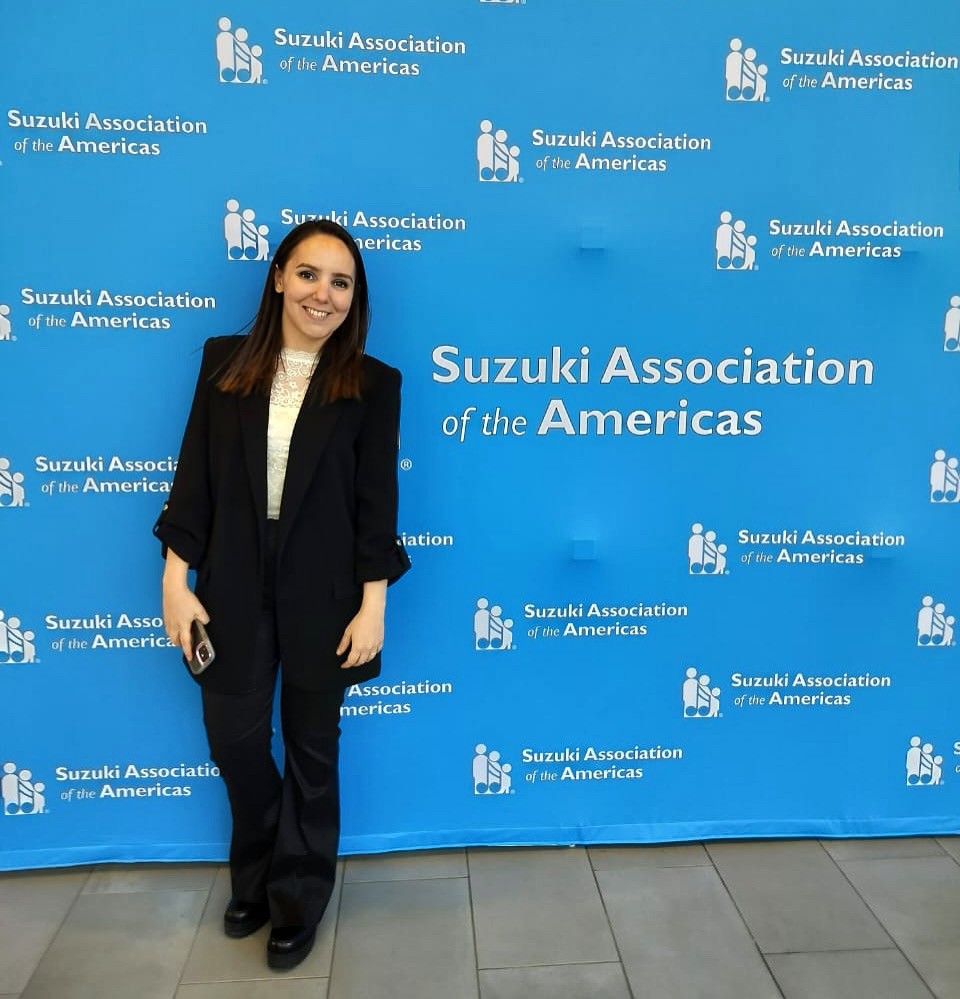
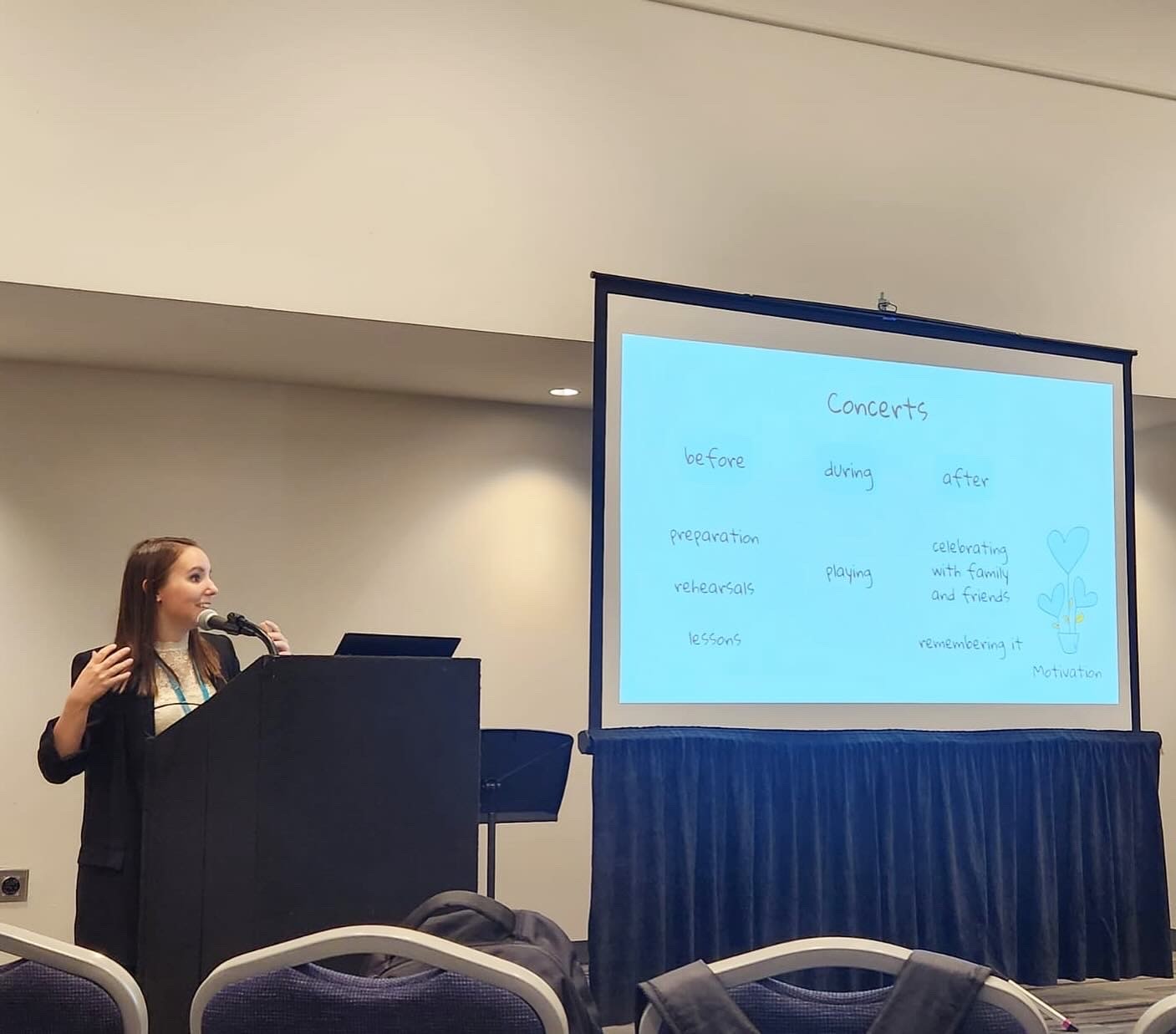
Any advice for managing a group of music students?
I try to sustain the motivation of my students always high. I think about the things that were an inspiration when I was a child or an adolescent studying music. In my opinion, one of the most important things is giving spaces to play music in groups, with others. Sharing music with others is a big motivation for everyone.
When I was a child I used to love having group lessons, participating in festivals, playing with kids from other parts of the world, sharing music in family visits or attending master classes.
My grandma used to love “Greensleeves”, so I used to prepare this song for her every time she visited my family. I used to practice it previously, and it was a good motivation for studying.
Also, having master classes is very motivating, I remember all of them and what the different teachers told me. I think that when you, as a teacher, tell something positive to your student it is like adding one block to her/his self-esteem, but when a teacher during a master class says something similar, it is like adding four blocks.
In addition, organizing concerts is a good idea. Concerts have an expansive effect because they motivate us before (in the rehearsals, group lessons, practices, etc.), during, and after the concert, remembering the ones that we enjoyed the most.
Finally, I consider that the vocabulary that we use during the lessons is very relevant. I try to always be kind with my students, telling them first the positive things about their performances, and then phrases like “We will work on…”. I think that being a positive teacher is one of the main things to sustain the learning process of our students.
Contact Info:


